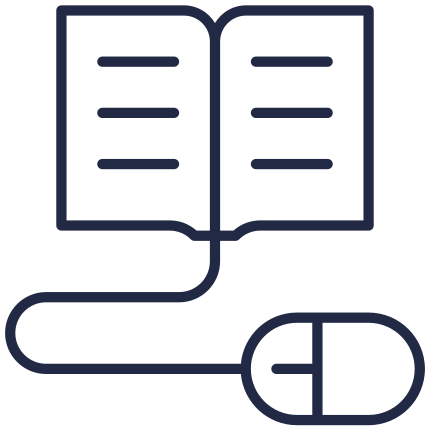 Information and Digital literacies, including AI literacy, are essential for students and graduates to thrive in today's rapidly evolving academic and professional landscapes. These literacies empower individuals to critically engage with information, effectively use digital tools, and responsibly interact with AI technologies.
Information and Digital literacies, including AI literacy, are essential for students and graduates to thrive in today's rapidly evolving academic and professional landscapes. These literacies empower individuals to critically engage with information, effectively use digital tools, and responsibly interact with AI technologies.
Information literacy helps students succeed by equipping them with the skills to effectively find, evaluate, and use information. This ability enables students to make informed decisions, solve problems, and complete assessment tasks with confidence.
Digital literacy enables students to confidently adopt new technologies and thrive in a tech-centric society, directly influencing academic performance and employability. Research shows that digitally literate students tend to perform better academically and are more prepared for the workforce. Beyond technical skills, digital literacy involves using technology ethically.
AI literacy, an extension of information and digital literacy, is now equally essential, as AI technologies reshape education and work. Students need the ability to use AI tools for research and problem-solving while critically assessing their outputs and considering issues like bias, privacy, and integrity.
These interconnected literacies empower students to become ethical technology users, critical consumers, and creators of information. By embedding the Information and Digital Literacies GLO into teaching, we help students excel in their studies, adapt to workplace changes, and engage in lifelong learning.
Information and Digital Literacies are essential for success in academic study and lifelong learning. This GLO helps students develop the ability to:
These skills underpin critical thinking, independent learning, and academic success. Embedding this GLO helps students become confident, self-directed learners who can solve problems and adapt to digital change.
Graduates enter a world where the ability to manage and apply information is just as important as the ability to find it. The Information and Digital Literacies GLO ensures graduates are:
Graduates who master these skills are better prepared for continuous learning, career transitions, and active citizenship in a global, digital society.
Employers value graduates who are not just digitally competent but also digitally critical. This GLO ensures graduates can:
In a rapidly evolving job market, graduates with strong information and digital literacies are more effective problem solvers, decision-makers, and communicators, qualities essential for success in any profession.
Charles Sturt University acknowledges the traditional custodians of the lands on which its campuses are located, paying respect to Elders, both past and present, and extend that respect to all First Nations Peoples.
Charles Sturt University is an Australian University, TEQSA Provider Identification: PRV12018. CRICOS Provider: 00005F.
